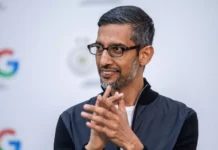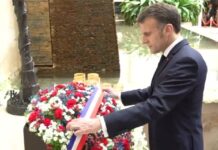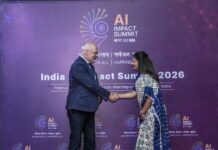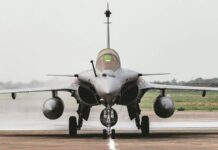
Modi was born into a middle class Hindu family on September 17, 1950 in Vadanagar, Gujarat. He served the Indian Army soldiers in transit during the Indo-Pak war and joined in the service of the flood-affected people in Gujarat in 1967.
He joined student organization Akhil Bharatiya Vidyarthi Parishad (ABVP) and worked for it as a full-time organizer. He was also involved in the anti-corruption Reconstruction Movement (Navnirman). Later he was nominated as the organization’s representative in the Bharatiya Janata Party (BJP). He worked with the Rashtriya Swayamsevak Sangh (RSS), which is a socio-cultural organization that focuses on the social and cultural development of India. Modi did his schooling in Vadnagar and finished a Master’s degree in Political Science. He is also quite a poet and has written a large number of poems.
Career
Narendra Modi started his political career in his early ages and spread the ideology of ABVP and worked with the RSS.He carried out important roles in many crucial situations such as the anti-corruption agitation in 1974 and the 19-month long emergency period in 1975-1977. He stood by the people and fought a spirited battle against the fascist acts of the Indira Gandhi led Central government.
Modi entered mainstream politics in 1987 by joining the Bharatiya Janata Party and worked for the Gujarat unit of the party. It was because of his proven talent as an effective organizer that he grew to the post of General Secretary of the party (Gujarat Unit) within a year. He created a strong cadre base for the party in Gujarat, working in partnership with Shankarsingh Vaghela.
Working under a master strategist like Modi, BJP started gaining political mileage in Gujarat and managed to ascend to power with a two-thirds majority in 1995. Since then, the BJP has been successfully ruling Gujarat.
Between 1988 and 1995 Modi was given responsibility to organize major events of national importance like Somnath-AyodhyaYatra (led by L.K Advani) and also Kanyakumari-Kashmir Yatra which led to the growth of BJP as the Central Government in 1998. He was appointed as the National Secretary of the party in 1995 with the charge of five major states in India, which was truly a rare distinction for a young leader and then as the General Secretary of BJP in 1998 up to 2001. In 2001, when Keshubhai Patel was removed from power, BJP chose Narendra Modi as the Chief Minister of Gujarat and from then on, he is the favorite leader of Gujarat people.
Gujarat witnessed a major riot in 2002, after the Sabarmati Express train was attacked by a group of Muslims thus leading to a Hindu-Muslim communal riot. These mishaps occurred on 27th February, 2002 at Godhra City and a total of 790 Muslims and 254 Hindus were killed and 223 more people were reported missing.
It caused heavy damage to the state including the destruction of religious worship places: 298 dargahs, 205 mosques, 17 temples and 3 churches were destroyed during the riots. As a consequence of the riots, Modi resigned from his position. However, the people of Gujarat still patronized Modi and he came back to power after getting elected again in the state elections.
Modi was considered responsible for these riots and the U.S withdrew his visa. The Supreme Court of India on its part appointed a special investigation team to investigate Modi’s alleged role in the riots, but the team could not find any evidence against him.
Legacy
In 2001, when Modi took charge as the Chief Minister of Gujarat, the state was struggling with a shrinking economy because of various reasons including the massive earthquakes of 2001. He put in lot of efforts to restore the state’s economy and as a result of his efforts, Gujarat registered a 10% growth rate in his first tenure which was the highest growth rate among Indian states. Gujarat has bagged several awards and was recognized by the world under his leadership. The state of Gujarat won awards like “The UN Sasakawa Award for Disaster Reduction”, “Commonwealth Association for Public Administration and Management (CAPAM)” award for innovations in governance, UNESCO award and CSI award for e-Governance to name some.
Awards and accolades
Best Chief Minister of the Country (2006) fDi Personality of the Year Award (2009) by fDi Magazine. This award was withdrawn later and awarded to the state of Gujarat instead.
Narendra Damodardas






